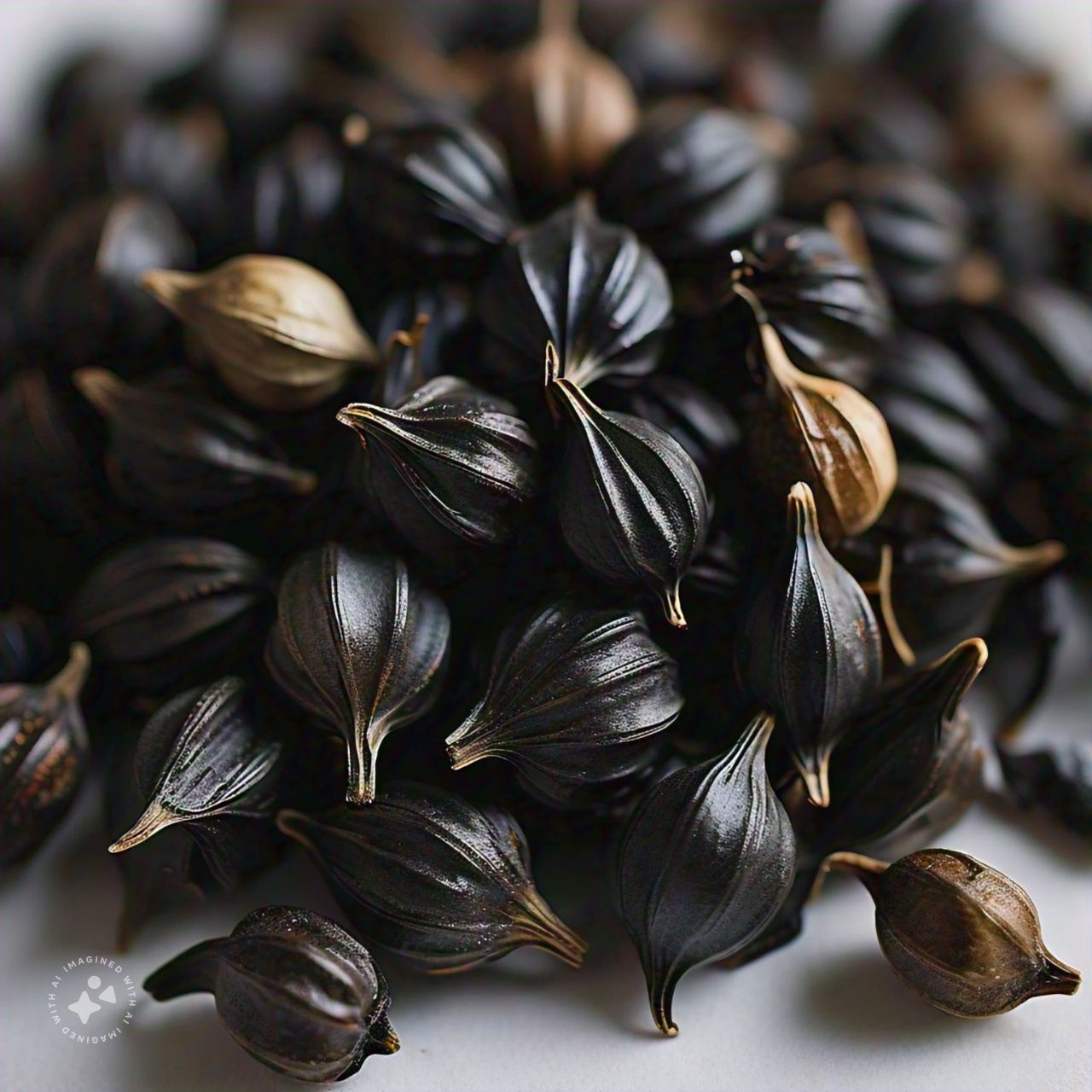Nigella seeds, also known as kalonji or black cumin seeds, are tiny black seeds derived from the Nigella sativa plant. Known for their unique flavor and numerous health benefits, these seeds are a staple in traditional medicine and global cuisines.
Nutritional Value and Health Benefits
Why Nigella Seeds Are a Superfood
Nigella seeds are rich in essential nutrients and bioactive compounds:
-
Thymoquinone: A powerful antioxidant and anti-inflammatory compound.
-
Dietary Fiber: Promotes digestive health and supports weight management.
-
Healthy Fats: Contains omega-3 and omega-6 fatty acids.
-
Vitamins and Minerals: High in calcium, iron, and zinc.
Key Health Benefits
-
Boosts Immunity: Strengthens the immune system with potent antioxidants.
-
Supports Heart Health: Helps regulate cholesterol and improve circulation.
-
Aids Digestion: Relieves bloating, constipation, and gas.
-
Manages Blood Sugar: Beneficial for individuals with diabetes.
-
Enhances Skin and Hair Health: Known for its anti-aging and moisturizing properties.
-
Promotes Respiratory Health: Useful in managing asthma and coughs.
Culinary Uses of Nigella Seeds
How to Use Nigella Seeds in Cooking
-
Flavor Enhancer: Sprinkle over bread, pastries, and naan.
-
Spice Mixes: Combine with other spices for masalas and rubs.
-
Pickling: Essential in pickling recipes for a tangy, earthy note.
-
Teas and Drinks: Add to herbal teas for health benefits.
Cooking Tips
-
Toast nigella seeds lightly to release their full aroma and flavor.
-
Pair with ingredients like lemon, garlic, or cumin for balanced dishes.
-
Use as a garnish on curries, soups, and salads.
Sustainability and Food Waste Impact
The Environmental Benefits of Nigella Seeds
-
Low Environmental Impact: Nigella sativa plants require minimal resources to grow.
-
Biodegradable: Seeds and their by-products decompose naturally.
Tips to Reduce Food Waste
-
Store nigella seeds in airtight containers to maintain freshness.
-
Incorporate into multiple recipes to avoid unused leftovers.
-
Use leftover seeds in compost to enrich soil fertility.
Seasonal Favorites and Holiday Recipes
Seasonal and Holiday Uses
-
Winter Warmers: Add nigella seeds to soups and stews for warmth.
-
Festive Treats: Use in festive bread and savory snacks.
-
Summer Delights: Mix with yogurt or sprinkle over cold salads.
Comparisons: Nigella Seeds vs. Other Black Seeds
| Feature | Nigella Seeds | Black Sesame Seeds | Chia Seeds |
|---|---|---|---|
| Flavor Profile | Earthy, slightly bitter | Nutty | Neutral |
| Culinary Uses | Pickling, bread, curries | Baking, topping, snacks | Smoothies, puddings |
| Nutritional Content | High in antioxidants | Rich in calcium | Omega-3 and fiber-rich |
Frequently Asked Questions
Are Nigella Seeds the Same as Black Sesame Seeds?
No, while they look similar, nigella seeds have an earthy, bitter flavor compared to the nutty taste of black sesame seeds.
How Do I Store Nigella Seeds?
Store in a cool, dry place in an airtight container for up to a year.
Can Nigella Seeds Be Used for Hair and Skin?
Yes, nigella oil derived from the seeds is widely used for moisturizing skin and strengthening hair.
Call to Action: Harness the Power of Nigella Seeds Today!
Discover the unique flavor and health benefits of nigella seeds. Purchase high-quality nigella seeds from trusted suppliers and transform your cooking and wellness routine!





Share:
The Ultimate Guide to Basil Seeds: Benefits, Uses, and Sustainability
The Complete Guide to Flax Seeds: Benefits, Uses, and Sustainability